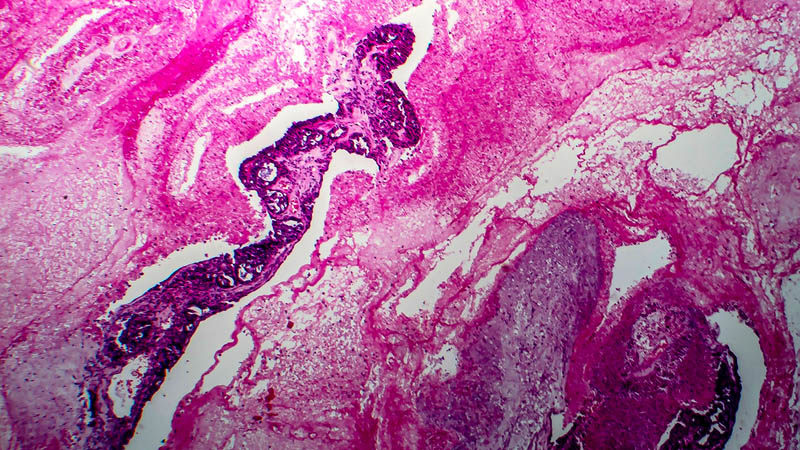The role of antioxidant vitamins in gynecologic malignancies
Anna Markowska1, Karolina Jaszczyńska-Nowinka2, Joanna Kaysiewicz3, Anna Makówka3, Janina Markowska2
 Affiliacja i adres do korespondencji
Affiliacja i adres do korespondencjiVitamins D, C, E and A, which belong to antioxidants, exhibit anticancer activity. The mechanism of vitamin D antitumor activity involves the inhibition of cell proliferation, stimulation of apoptosis, inhibition of angiogenesis and an increased activity of metalloproteinases in the extracellular matrix. Vitamin D prevents the development and progression of breast cancer; its lower levels in the serum of premenopausal women are linked to the development of triple negative cancer (E-, PR-, HER2-). Cohort studies on the effects of VDR (vitamin D receptor) polymorphisms and studies related to vitamin D supplementation in postmenopausal women in the context of reduced risk of breast cancer are controversial. Vitamin D exerts a protective effect against ovarian and endometrial cancer. Vitamin C protects cells against the formation of mutagenic nitro compounds, enhances the immune system by promoting the activity of NK, T and B cells. Vitamin C supplementation improves treatment outcomes in disseminated breast cancer; the vitamin acts synergistically with cisplatin, it increases paclitaxel and doxorubicin cytotoxicity and abolishes toxic effects of tamoxifen. Vitamin C combined with chemotherapy in ovarian cancer prolongs patient’s survival. It increases sensitivity to cisplatin. Vitamin E exerts anticancer effects via multiple pathways. Its increased administration reduces the risk of breast cancer and ovarian cancer. The reduction in the incidence of endometrial cancer remains controversial. Vitamin A also exerts antioxidant effects. The compound reduces the incidence of DNA damage in cells exposed to hydrogen peroxide and protects cell organelles (including mitochondria) against the negative impact of lipid peroxidation. It reduces the risk of multiple tumors, including breast and cervical cancer.









